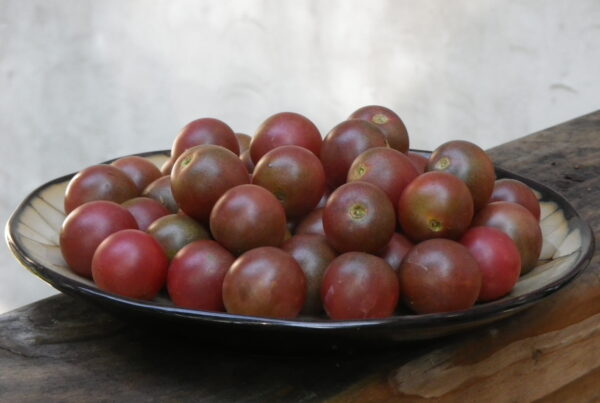Major New Investments in Organic and Climate-Smart Agriculture
USDA Launches Organic Transition Initiative
$300 Million to Help Farmers Make the Transition
In August, the USDA rolled out its new Organic Transitions Initiative, which will invest $300 million in American Rescue Plan funding to provide technical and financial assistance to farmers seeking to undertake a transition to USDA certified organic production. The program has several key components involving different USDA agencies:
- $75 million in direct financial and technical assistance to help transitioning-organic farmers implement the new Organic Management Conservation Practice Standard (Natural Resources Conservation Service).
- $25 million to support transitioning farmers in participating in crop insurance programs (Risk Management Agency)
- $100 million for the Transition to Organic Partnership Program to establish six regional partnerships to build mentoring networks in which experienced and successful organic producers and organic producer NGOs provide mentoring and training for new and transitioning organic farmers (Agricultural Marketing Service)
- $100 million for Organic Market Development including processing capacity and infrastructure as well as market support especially for organic grain, feed, rotation crops, livestock, and dairy (Agricultural Marketing Service).
This initiative represents an unprecedented USDA investment in helping farmers learn and adopt organic practices and systems.
… and VABF gets a piece of the action
VABF joins Georgia Organics (GO), Carolina Farm Stewardship Association (CFSA), the Soil Health Institute, and seven Universities as major partners working with Rodale Institute on Quantifying the Potential to Reduce Greenhouse Gas Emissions and Increase Carbon Sequestration by Growing and Marketing Climate-Smart Commodities in the Southern Piedmont. This project, with total funding up to $25 million, aims to help vegetable farmers in the southern Piedmont region reduce their net greenhouse gas emissions and enhance market access and farm economic viability by helping farmer adopt climate-friendly practices, enhancing consumer buy-in, and addressing socio-economic barriers to climate smart vegetable production.
This program represents an unprecedented federal investment in climate-friendly agriculture and in supporting farmers to adopt systems that are at once profitable and beneficial to climate, soil, and other resources. I had time only to skim through a few of the myriad projects funded and was encouraged to see strong themes of engaging Indigenous, Black, and other ethnic minority leaders and organizations; of crop diversification; and of agroforestry systems that integrate tree crops into livestock and/or row crops. On the other hand, some projects did focus on corn, soy, and other dominant commodity crops. In addition, only time will tell how effectively the market-focused approach of these partnerships will yield reductions in agriculture’s greenhouse gas footprint or build agricultural resilience. Note: the opinions expressed in this paragraph are those solely of Mark Schonbeck and do not represent VABF or any other organization or agency.
Proposal Deadline November 22, 2022
Eligible applicants include partnerships of three or more entities from two or more of the following categories: producer networks or associations, food councils, tribal governments, state agencies or regional authorities, institutions of higher learning, nonprofits, and economic development corporations. Awards to the newly establishing Centers will range from $15 million to $50 million over a five-year period.
$40 Million available for nutrient management grants
VABF and 150 other organizations sign on
On September 13, the Union of Concerned Scientists (UCS) delivered a letter to President Biden urging him to ask Congress to write a transformative 2023 Farm Bill that reflects the President’s values, including:
- Center racial justice
- End hunger
- Meet the climate crisis head-on
- Increase access to nutritious food
- Ensure safety and dignity for food and farm workers
- Protect farmers and consumers
- Ensure the safety of our food supply
VABF joined UCS, the National Sustainable Agriculture Coalition (NSAC) and 150 other sustainable agriculture, food security, labor, and environmental organizations in signing the letter. For more background on this letter, see the UCS Press Release.
On September 16, both chambers of the US Congress met in the Capitol for the first time since the August recess to undertake initial steps on the 2023 Farm Bill and many other tasks. With just two weeks before the fiscal year ends and the election season begins in earnest, precious little time remains, and top priority is to agree to a Continuing Resolution to keep the government open after Fiscal Year 2022 closes. See the NSAC blog on Congress for more.
What a joy it was to gather face to face in Durham on July 31- August 3 to continue our work together and celebrate the creativity and dedication of the farms we toured as well as one another’s endeavors. NSAC staff and member representatives returned home with renewed energy for the work ahead – advocating for a transformative 2023 Farm Bill that takes substantial strides toward building agricultural and community resilience, racial equity, food sovereignty and security, and climate stability. Check out the NSAC summer meeting blog post for photos, stories, and reflections from our time together.






